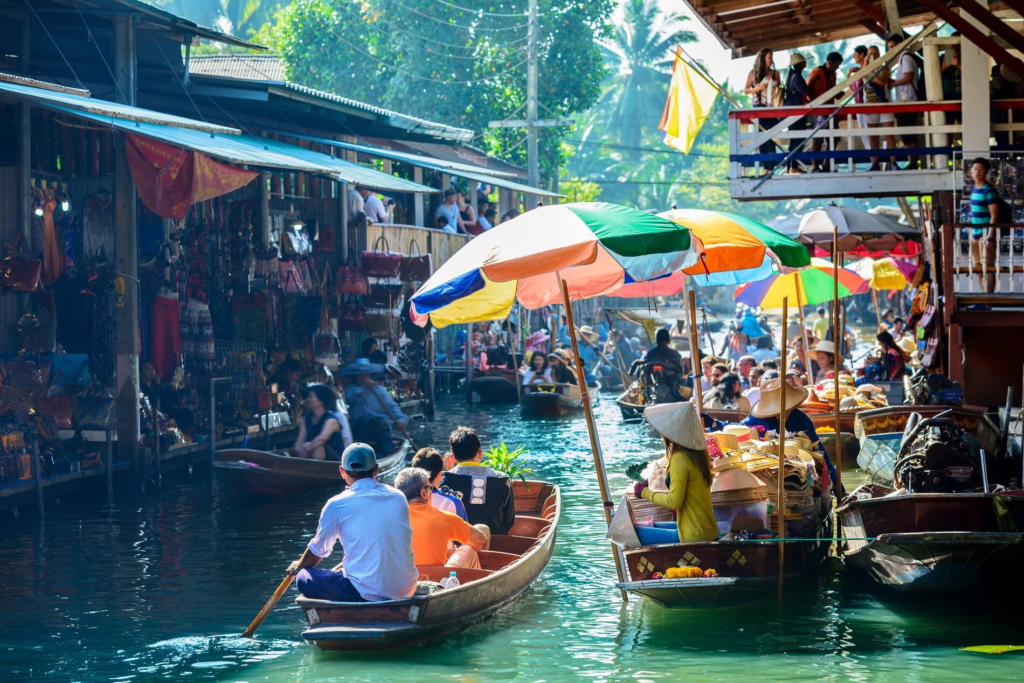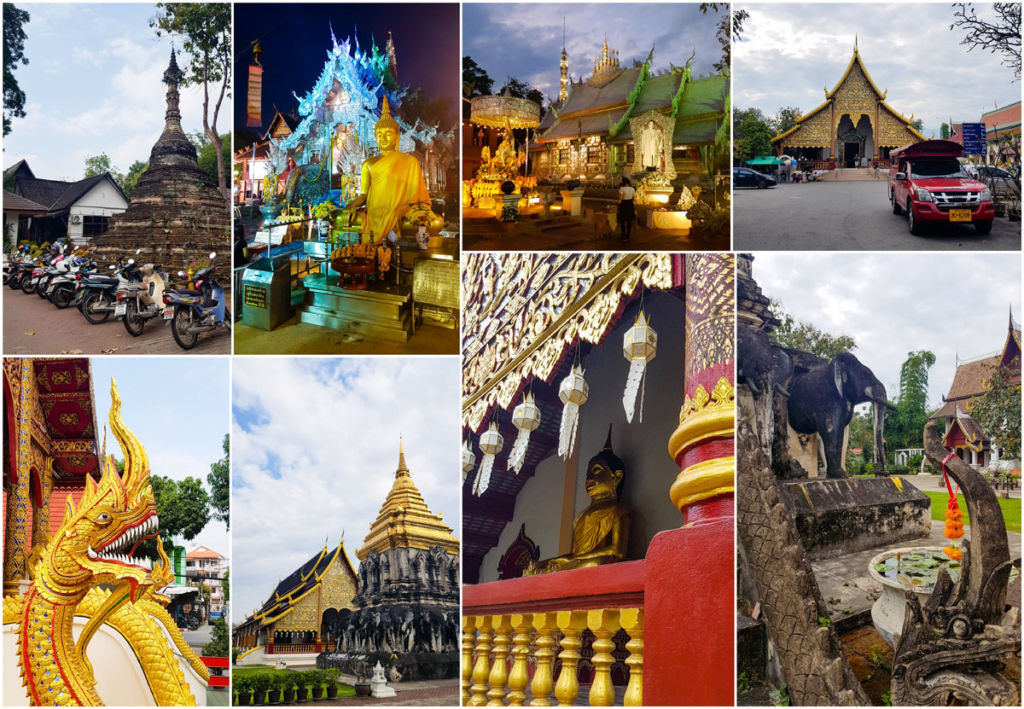Thailand has long been a popular destination for travelers, with its stunning beaches, vibrant culture, and affordable lifestyle. Recently, it has become a hub for digital nomads, freelancers, and remote workers who are seeking a balance between work and travel. To cater to this growing trend, Thailand introduced the Digital Nomad Visa, also known as the Long-Term Resident (LTR) Visa for remote workers.
In this guide, we’ll explore everything you need to know about Thailand’s Digital Nomad Visa, including the application process, eligibility criteria, costs, and key statistics. We’ll also provide practical tips and advice for anyone considering making Thailand their next destination.
What Is Thailand’s Digital Nomad Visa?

Thailand’s Digital Nomad Visa was created to attract skilled professionals and entrepreneurs who can work remotely while residing in the country. This visa offers long-term residency, allowing remote workers to stay in Thailand for up to 10 years, with a range of benefits designed to make living and working in Thailand as seamless as possible.
Officially known as the Long-Term Resident (LTR) Visa, it aims to attract four types of individuals:
- Wealthy Global Citizens
- Wealthy Pensioners
- Work-From-Thailand Professionals (Digital Nomads)
- Highly Skilled Professionals
For digital nomads, the focus is on those working for international companies, freelancers, or entrepreneurs who rely on technology and internet-based work. The visa allows them to live in Thailand while continuing their work remotely without the need for a traditional work permit.
Read more: Best 6 EU-Based Digital Nomad Visa of All Time
Key Benefits of Thailand’s Digital Nomad Visa

The LTR Visaprovides digital nomads with a variety of benefits that make it an attractive option for those looking to live in Thailand. Some of the primary benefits include:
- Long-Term Residency: The visa allows holders to stay in Thailand for up to 10 years, offering long-term stability for remote workers.
- Work Legally: Unlike traditional visas that don’t allow remote work, the LTR Visa explicitly permits digital nomads to work for international companies while living in Thailand.
- Tax Advantages: Thailand offers a 17% flat personal income tax rate for visa holders, which is significantly lower than the country’s usual income tax rates (which can reach up to 35%).
- Fast-Track Services: Visa holders receive priority at international airports, making traveling in and out of the country more convenient.
- Dependents: Visa holders can bring their spouse and children (up to four) with them, which is a major advantage for families who want to relocate.
Eligibility Criteria for Thailand’s Digital Nomad Visa

To apply for the Digital Nomad Visa, you must meet specific eligibility requirements. The criteria focus on your employment status, income, and qualifications. Here’s a breakdown of the key requirements:
- Employment with a Foreign Company: You must be employed by a company registered outside of Thailand. This company must have generated at least $150 million USD in revenue over the past three years. Alternatively, if you are a freelancer or self-employed, you must prove a successful career and work for clients primarily based outside of Thailand.
- Minimum Income Requirements: Applicants must demonstrate a minimum annual income of at least $80,000 USD for the past two years. If you don’t meet this threshold, you may still qualify if you earn at least $40,000 USD annually and possess a master’s degree, own intellectual property, or have at least five years of professional experience in fields such as science, technology, or engineering.
- Health Insurance: Visa holders must maintain health insurance with coverage of at least $50,000 USD during their stay in Thailand.
- Clean Criminal Record: You must provide proof of a clean criminal record and pass a background check.
- Relevant Work Experience: Applicants must have at least five years of work experience in fields related to digital technology, marketing, design, or any other industry that can be carried out remotely.
Application Process for Thailand’s Digital Nomad Visa

Applying for Thailand’s Digital Nomad Visa involves several steps, but the process is straightforward if you meet the eligibility criteria. Here’s how to apply:
- Prepare Your Documents: Before starting the application process, gather all the necessary documents, including:
- Proof of employment or freelance contracts
- Evidence of your income for the past two years
- Health insurance policy
- Criminal record clearance
- Passport with at least six months validity
- Submit Your Application: You can submit your application online through Thailand’s official immigration portal or visit the Thai embassy in your home country. Make sure to fill out the application form accurately and attach all the required documents.
- Application Review: Once your application is submitted, Thai immigration officials will review it. This process typically takes 30-45 days. During this period, they may request additional documents or information.
- Receive Your Visa: If your application is approved, you will receive your Digital Nomad Visa, which allows you to enter Thailand and begin living and working remotely.
Cost of Thailand’s Digital Nomad Visa

The cost of obtaining the Digital Nomad Visa for Thailand is relatively affordable, especially considering the benefits it provides. Here’s a breakdown of the key costs:
- Visa Fee: The application fee for the LTR Visa is approximately 50,000 THB (around $1,500 USD).
- Health Insurance: Since health insurance is mandatory, expect to pay between $300-$1,000 USD annually, depending on the level of coverage and the provider.
- Living Costs in Thailand: One of the major advantages of living in Thailand as a digital nomad is the low cost of living. On average, remote workers can live comfortably on a budget of $1,200-$2,000 USD per month, which includes rent, food, transportation, and leisure activities.
- Rent: The cost of rent in Thailand varies depending on the city. In Bangkok, you can expect to pay around $500-$1,000 USD per month for a one-bedroom apartment, while in smaller cities like Chiang Mai, rent can be as low as $300-$500 USD.
- Food: Street food is a staple in Thailand, with meals costing as little as $1-$3 USD. If you prefer dining in restaurants, expect to pay around $10-$20 USD per meal.
- Transportation: Public transportation is affordable, with options like the BTS Skytrain in Bangkok or tuk-tuks and buses in smaller cities. Monthly transportation costs are typically under $50 USD.
Key Statistics: Digital Nomads in Thailand

- Number of Digital Nomads: In recent years, Thailand has become one of the top destinations for digital nomads. In 2022, it was estimated that over 100,000 digital nomads were living and working in Thailand, with Chiang Mai and Bangkok being the most popular locations.
- Cost of Living: According to Numbeo, the cost of living in Thailand is 40% lower than in the United States. This affordability makes Thailand a prime destination for remote workers looking to enjoy a high quality of life while saving money.
- Internet Speed: Thailand ranks well in terms of internet connectivity. The average download speed is around 175 Mbps, making it ideal for digital nomads who rely on fast and reliable internet for their work.
- Tourism Revenue: Thailand’s tourism industry is booming, and in 2019, the country welcomed nearly 40 million tourists, contributing over $60 billion USD to the economy. The rise of digital nomads has further boosted the local economy, with many choosing to stay for extended periods and contribute to the growth of various sectors, including real estate, dining, and services.
Tips and Advice for Digital Nomads in Thailand
- Choose the Right City: Thailand offers a wide range of cities that cater to different lifestyles. Bangkok is great for those who enjoy a fast-paced urban environment with easy access to international flights, while Chiang Mai is perfect for those seeking a quieter, more laid-back atmosphere. Coastal cities like Phuket and Krabi are ideal for digital nomads who want to live by the beach.
- Co-Working Spaces: Thailand is home to a thriving co-working community. In major cities like Bangkok, Chiang Mai, and Phuket, you’ll find numerous co-working spaces that provide high-speed internet, comfortable workstations, and opportunities to network with other remote workers. Some popular options include Hubba in Bangkok and Punspace in Chiang Mai.
- Learn Basic Thai: While English is widely spoken in tourist areas, learning basic Thai phrases can enhance your experience and help you navigate daily life more easily. Locals appreciate the effort, and it can make interactions smoother, especially in more rural areas.
- Health and Safety: Make sure you have comprehensive health insurance, as it is required for the visa. While Thailand has excellent healthcare facilities, especially in larger cities, having insurance ensures you won’t be caught off guard by unexpected medical expenses.
- Stay Connected with Local Communities: Thailand has a large expat and digital nomad community, and there are numerous online groups and forums where you can connect with others, ask questions, and share experiences. Joining these communities can make your transition to life in Thailand smoother and help you build a support network.
- Respect the Local Culture: Thailand is a country with deep cultural and religious roots. It’s important to respect local customs, dress modestly when visiting temples, and be mindful of cultural sensitivities. A little cultural awareness goes a long way in ensuring you have a positive experience in the country.
Read also: Greece Digital Nomad Visa: Work and Live in Greece








